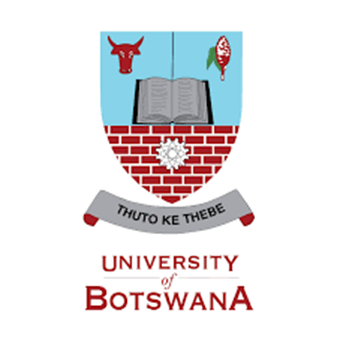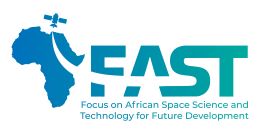
UB, established in 1982, is the first and prominent HEI in Botswana. The University has 7 faculties. The Faculty of Science has various departments covering Physical Sciences, Mathematical Sciences and Computer Sciences. The University's overall mandate and aim is to provide quality education, undertake problem solving research, disseminate knowledge and foster relationships with industries, sister HEIs and researchers in and outside Botswana. The University of Botswana is committed and is putting effort and impact into creating a knowledge-based economy not only in Botswana but also Africa. To this end, the University has a strategy of creating a future for knowledge generation (2020-2029) which, among other things, aims to produce well-rounded graduates relevant to industry and society. The University has dedicated support structures including the Office of Research and Development, International Education and Partnership Office, and Center for Academic Development and Research. The University has been a key role player in organizing the Annual National Science Week and STEM Festivals.
The Department of Computer Science is leading projects related to Software development vital to the society. The Department through High Performance Computing and Data Science Research Cluster is engaged in the Southern African region’s collaborative network to develop and utilise a regional cyber-infrastructure – covering High Performance Computing ecosystems, National Research and Education Networks (NRENs), Data Commons and the requisite Human Capital Development. The cyberinfrastructure enables regional collaboration on data and compute intensive projects on priority areas – ranging from weather, agriculture, water, health, biodiversity, and others. The cyberinfrastructure will also support data processing from Space Sciences in Astronomy for the requirements for the Square Kilometre Array project and will be used to support this project.
High Performance Computing and Data Science Research Cluster also supports data science capacity building in the SKA project for Human Capital Development regarding Botswana’s involvement in the projects through the DARA (Development in Africa with Radio Astronomy) and DARABigData Projects. We also engage in the CODATA-RDA School Research Data Science - a collaboration between CODATA (Committee on Data) and RDA (Research Data Alliance) and ICTP on a Research Data Science capacity building initiative for equipping researchers with the necessary skills for dealing effectively with research data. This is offered through an evolving curriculum since 2016.
Through the SADC HPC (High Performance Computing) ecosystems project, a network of regional High-Performance Computing Tier 3 institutional systems has been deployed to support and compute data intensive research projects for capacity building in HPC and Data Science and for the SKA Project preparedness discussed above. These systems form a basis for a regional and future continental research cloud. The Department of Computer Science at UB and High-Performance Computing and Data Science Research Cluster are also engaging in the African Open Science Platform (AOSP) – A platform that provides frameworks to guide countries in the development of policies, infrastructure, incentives, and human capital regarding leveraging open science and open data and doing science in the era of digital revolution.
Role in the project
WP2: The Department of Computer Science at UB will lead the WP2. The HPC Computational facility and Compute environment will host the Virtual platform for CESST, host the online events and store the Citizen Science, IoT, Drone Imagery, and Astronomical Imagery datasets for STEM curricular and training delivery.
WP3: UB will contribute to the creation of high-quality academic content for the centre of excellence and provide the continuous IT support for the delivery of the contents.
WP4: UB staff will contribute to the analysis of the gender conditions in Africa in collaboration with other HEIs.
WP5: UB has been working in staff mobility for several years and will exploit the experience and infrastructure it already has in the implementation of physical and virtual mobility programmes.
WP7: UB staff will contribute to engaging stakeholders, promoting the project/dissemination, preparing content for outreach and advertisement of the project results/events. UB has also been organizing STEM festivals and will contribute to the organization of the events.



